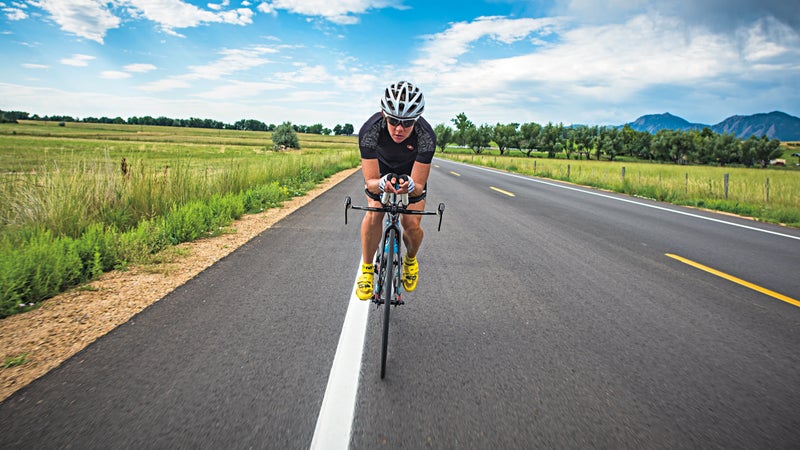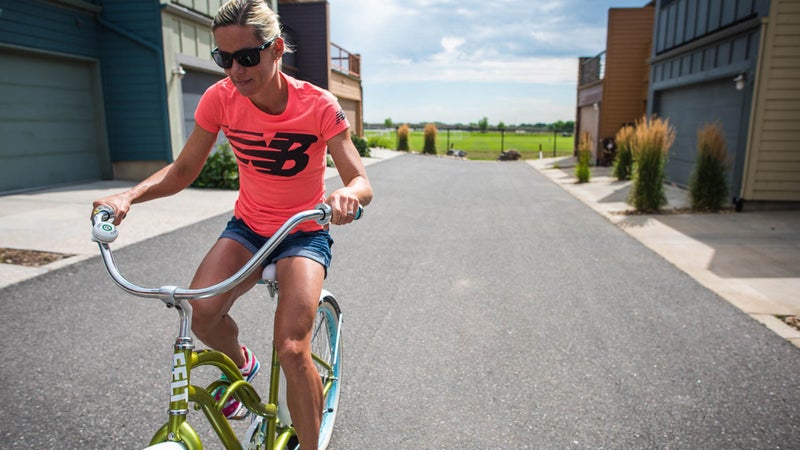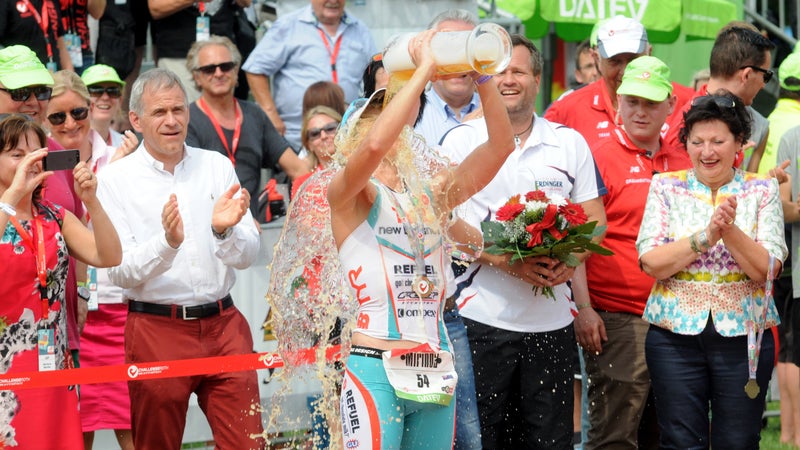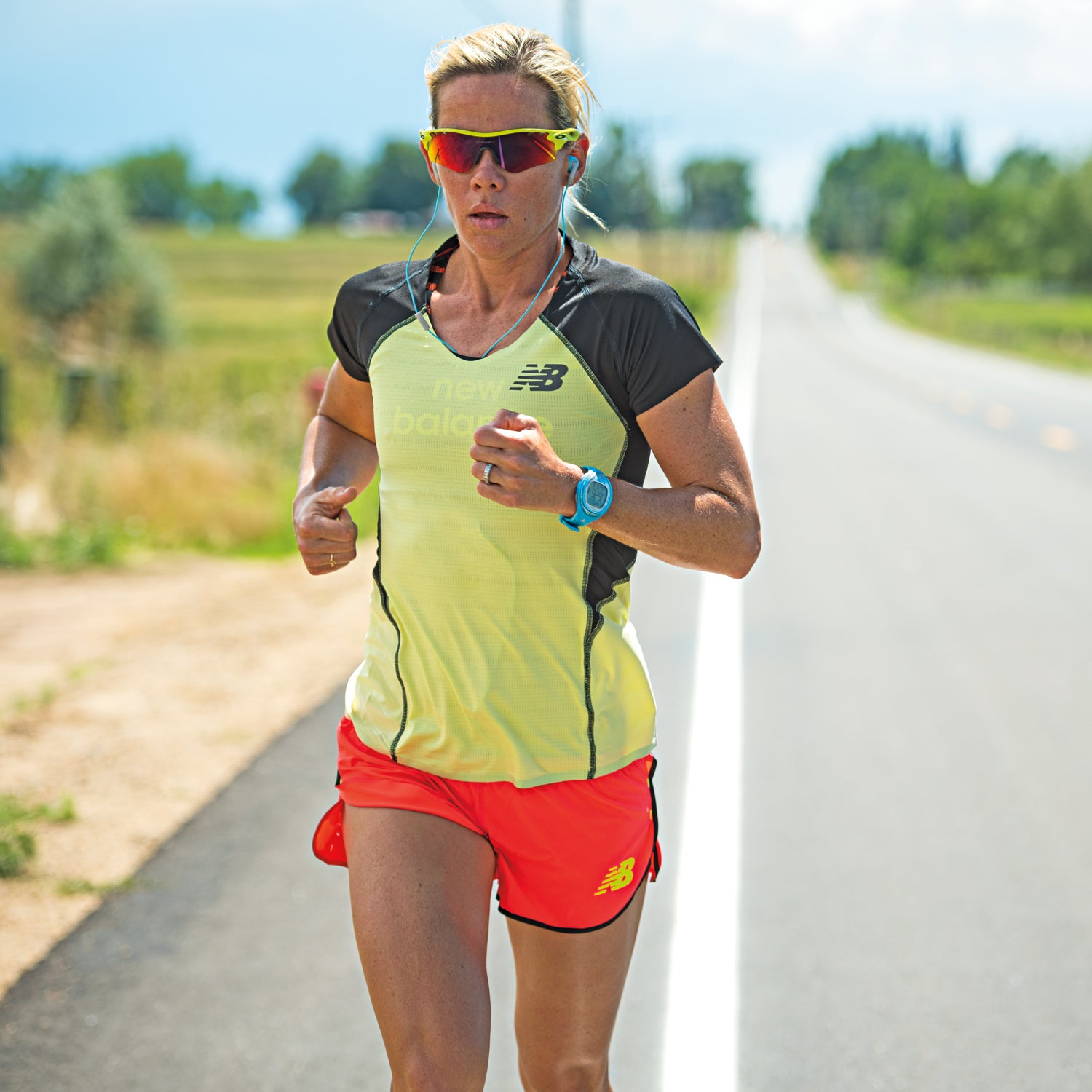When hopped off her bike last year at the in Kona, she was more than 14 minutes behind the female leaders, which is kind of like being down five runs in the bottom of the ninth inning—the odds of eking out a win are almost zero. “I didn’t think that kind of deficit had ever been overcome,” says the 34-year-old Australian. “But I was the defending champion, and I felt like anything other than a victory would be a failure.”
Carfrae’s optimism in the face of impossible odds is why the 5’3″ former basketball player, who grew up with five siblings on a farm in Queensland, Australia, is a three-time World Ironman Champion. In 2010, just one year after Carfrae started racing Kona, she won triathlon’s most coveted event. Turns out she was just getting warmed up. In 2013, Carfrae posted a 2:50:38 marathon, the third-fastest time ever, male or female, at Kona. Then came last year’s remarkable comeback, by far the largest in the history of the sport.
“I’ve realized that it takes those big, important races to get the best out of myself,” says Carfrae. “I still have nerves, but to have the opportunity to race against the best in the world is what excites me and gets me going. I think about Kona most of the year during my training.”

As the race, which is held annually in early October, draws nearer, her focus intensifies. By the beginning of August, Carfrae will have tapered from all other responsibilities. “I call it my Kona training block,” says Carfrae, who lives in Boulder, Colorado. “I lock myself into training and don’t make any more commitments.” She’ll swim three to four times per week, between four and five kilometers each session. Armed with her arsenal of New Balance running shoes, including the lightweight and the , she’ll run varying distances six days a week, sometimes twice per day, and she’ll bike roughly 250 miles a week, always visualizing the lava fields of Kona. �����ԹϺ��� of her strict swim, bike, and run routine, Carfrae will also do two or three core sessions per week. Every detail of her program, including what she wears, has been meticulously orchestrated, allowing her to focus less on sweating and more on hitting her training goals.
She’ll also train with her husband, fellow triathlete , as often as possible. “We love riding and training together,” says Carfrae. “But when we get closer to Kona, our programs become very specific, so we’re less likely to do an entire ride or run together.”
If Carfrae has a weakness, it’s her swimming. “Having grown up in Australia, everybody thinks I should be a good swimmer,” she says. “But swimming is just one of those sports where if you haven’t done it from age four or five, you’re going to have trouble for the rest of your life. But I keep working on it and making tiny little technical adjustments. As the saying goes, ‘You can lose the race in a swim, but you can’t win the race in a swim.’”

That’s what almost happened to Carfrae at the World Champion event last year. After a particularly brutal first two legs at Kona, she started running with five women ahead of her.
“The first few miles on the run, I said to myself, ‘What’s the point? You’re not going to win,’” says Carfrae. “But then I was able to tell myself, ‘You’re in great shape, so just do the best you can.’”
Carfrae began methodically picking off the women in front of her, one by one. “When my mindset changed from trying to win the race to trying to do the best I can do, it enabled me to race better and stop feeling so terrible. Getting to the finish line was an emotional roller coaster, but when I stopped thinking, ‘I suck,’ and started thinking, ‘Wow, you could be on the podium,’ everything shifted.”

Fueled by the positive mantras she’s come to rely on in these instances, Carfrae kicked it into high gear. She ended up running a blistering 2:50:26 marathon, which was good enough to beat Daniela Ryf of Switzerland by more than a minute. The win put Carfrae in the super-elite strata of female triathletes, joining Paula Newby-Fraser, Natascha Badmann, and Chrissie Wellington as the only women who have won three or more world championships.
At this rate, it’s entirely possible that she could win several more. Still young by triathlon standards, Carfrae has no intention of taking it easy. At some point, however, since she and O’Donnell want to have a family, Carfrae says, “We’ll have to slow down enough to make a baby. But I haven’t ruled out the possibility of coming back and racing after the first child. The overwhelming factor is that I still feel like I have improvement in me. If I still feel like I can get faster, then I have a goal to strive for every year.”

